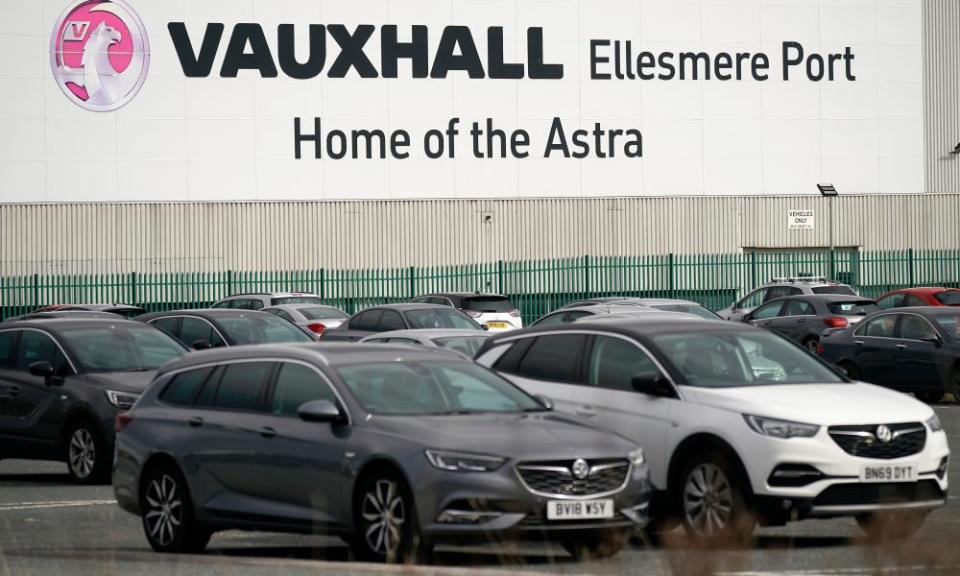Vauxhall plant at risk after 'brutal' 2030 ban, says Stellantis boss

The future of Vauxhall’s UK car production will depend on government support after the “brutal” decision to ban the sale of new petrol and diesel cars from 2030, according to the boss of Stellantis, the newly formed carmaker.
Stellantis was officially created on Saturday after the completion of the merger between Fiat Chrysler Automobiles and Peugeot, the owner of the Vauxhall brand. The merger, first announced in October 2019, has created a global automotive giant with 400,000 employees and 14 brands, but its completion has also refocused the spotlight on its plant in Ellesmore Port, one of Vauxhall’s two remaining British factories.
Carlos Tavares, installed as Stellantis chief executive after leading Peugeot into the merger, said a final decision on whether to invest in production of a new car at Ellesmere Port will be made “within a few weeks”. He added a clear warning that the future of UK production “depends on the UK government’s willingness to protect some kind of an automotive industry in its own country”.
Stellantis is in discussions with the UK government “to try to find a way that protects our people”, he said, speaking at a press conference on Tuesday after the new company’s shares started trading on the New York Stock Exchange.
On a global level, Tavares insisted the merger would be a “shield” against job losses, particularly when the coronavirus pandemic has pushed down car sales and left some plants nearly idle. A larger company would be able to spread the heavy costs of developing new electric vehicles, as well as using its bulk to negotiate cheaper prices for materials and parts, he argued.
However, Tavares suggested the UK ban on petrol and diesel cars had made it more difficult to invest in the Ellesmore Port plant in the Wirral, even though the Brexit deal reached on Christmas Eve removed the threat of tariffs or quotas on most car exports from the UK. There are about 1,100 workers at Ellesmere Port manufacturing the Astra car.
The UK announced in November that it will ban the sale of pure internal combustion engine cars by 2030 to try to cut carbon dioxide emissions that cause global heating. The ban was brought forward from 2040, to the delight of environmental campaigners, but the change infuriated the car companies who still make big profits from selling petrol and diesel cars.
“If you change, brutally, the rules and if you restrict the rules for business then there is at one point in time a problem,” Tavares said. “The more that we put stringent objectives on the automotive industry the more you get close to that limit.”
Tavares added that the UK faced stiff competition from factories in the EU for electric vehicle investment. It would make sense to locate an electric vehicle factory closer to the larger EU market, he said.
“You put your investment close to where you sell the highest volume,” he said. “What is left for the UK? That’s the things that people should understand. This is not rocket science.”
Matthias Schmidt, an independent automotive analyst, said Tavares’s comments were likely aimed “directly at Downing Street” in the hope that it would delay the 2030 deadline or at least opt for looser rules on which cars will be banned in 2030.
Hybrid cars, combining internal combustion engine and battery power, will be allowed until 2035, to protect the jobs of UK workers. Some carmakers hope the government will allow hybrids with smaller batteries and consequently higher exhaust emissions. The UK also regularly supports the car industry with direct grants for research.

 Yahoo Finance
Yahoo Finance 